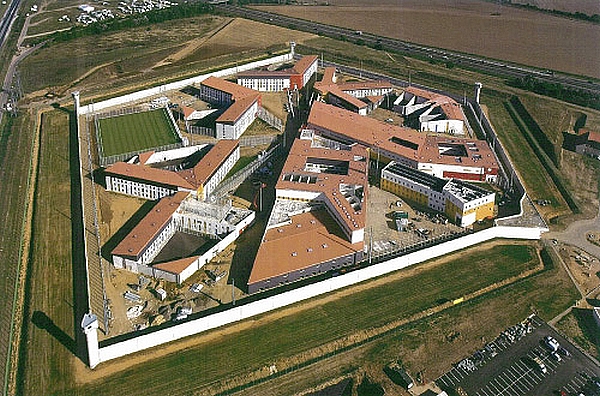It was a Sunday morning in early July 2018, and the fortress-like Réau prison, just south of Paris, hummed with its usual routines. Guards patrolled beneath the shadow of 17-ton walls and barbed wire. Watchtowers loomed, snipers on alert, and anti-helicopter netting stretched taut across the courtyards. Yet, in cell 207, Rédouane Faïd—France’s most infamous criminal—waited with the calm of a man who knew his moment had come.

The Making of a Mastermind
Rédouane Faïd’s story began long before that fateful day. Born in 1972 to Algerian immigrants in a cramped Paris apartment, Faïd was one of ten children. Poverty and discrimination shaped his early years. His first theft, committed with his brother, was less about greed than about feeling excluded—unable to afford the things other children had. A store detective’s racial slur stung deeply, cementing a sense of otherness.

But Faïd also found escape in the flickering light of movie theaters. French crime thrillers and American gangster films became his obsession. He memorized lines, mimicked scenes, and, as a teenager, began to live out the roles he admired on screen. By 18, he was robbing banks, quoting dialogue from his favorite films. His heists grew more elaborate, inspired by the likes of Point Break and Reservoir Dogs. He and his crew donned rubber masks and sharp suits, adopting movie aliases and staging robberies with cinematic flair.
Also Read: Police arrested 12 in Rs 38.88 lakh cyber fraud
Yet, Faïd’s criminal career was not without cost. In 2010, a failed armored truck robbery he masterminded ended in tragedy when police officer Aurélie Fouquet was killed. The crime shocked France and set law enforcement on a relentless hunt for Faïd, who was eventually captured and sentenced to decades behind bars.
A Prisoner Like No Other
Despite his notoriety, Faïd was oddly well-liked by guards. He was charming, quick-witted, and seemed to accept his fate with good humor. But in the months before his escape, prison officials grew uneasy. Faïd’s behavior changed—more visitors, cryptic phone calls, and a drone spotted over the prison suggested something was brewing.
Still, few could have predicted the audacity of what would unfold.
The Great Escape
Twenty miles away, a 65-year-old helicopter instructor named Stefan B. welcomed two men for a flight lesson. They paid cash, but something felt off. After landing in a field, the men reappeared—this time armed. They threatened Stefan, claiming to know his family’s whereabouts, and forced him to fly to Réau prison. Two more accomplices joined, loading duffel bags filled with smoke grenades, masks, AK-47s, and an angle grinder.
At 11:18 a.m., the vintage Alouette II helicopter hovered over the prison’s “honor courtyard”—the only section not covered by anti-helicopter netting. The pilot’s skill and the helicopter’s small size made the impossible possible.

Three masked men in bulletproof vests leapt out, setting off smoke grenades that blanketed the area in white. One man wielded the angle grinder, slicing through metal doors in seconds. Guards, unarmed in the courtyard, could only watch as chaos erupted. Calls to authorities were met with confusion and disbelief.
Inside, Faïd’s brother sat in the visiting room, stunned as the door was cut open. Rédouane Faïd burst out, leaving his brother behind. He sprinted down the corridor, saluted two inmates taking out the trash, and climbed into the waiting helicopter. As the rotors spun up, prisoners pressed against their cell bars, cheering. In less than ten minutes, Faïd was airborne—free once again.
Aftermath and Legacy
The helicopter landed near Charles de Gaulle Airport, where Faïd and his accomplices vanished in a getaway car. The pilot, unharmed, was released. News of the escape flashed across the globe. Faïd became a symbol of audacity and cunning. Some even cheered him on—one French actress tweeted, “Bravo Rédouane Faïd, all of France is with you.”
But the manhunt was relentless. For three months, Faïd eluded capture, disguising himself in a burqa during public outings. When police finally caught him in his hometown, they found a criminal who was both celebrated and reviled—a man whose life blurred the line between fact and fiction.
Today, Rédouane Faïd remains in solitary confinement, subjected to constant searches and shackled movements. He calls it being “buried alive.” His earliest possible release is 2060, when he’ll be 88 years old.
PNN






































